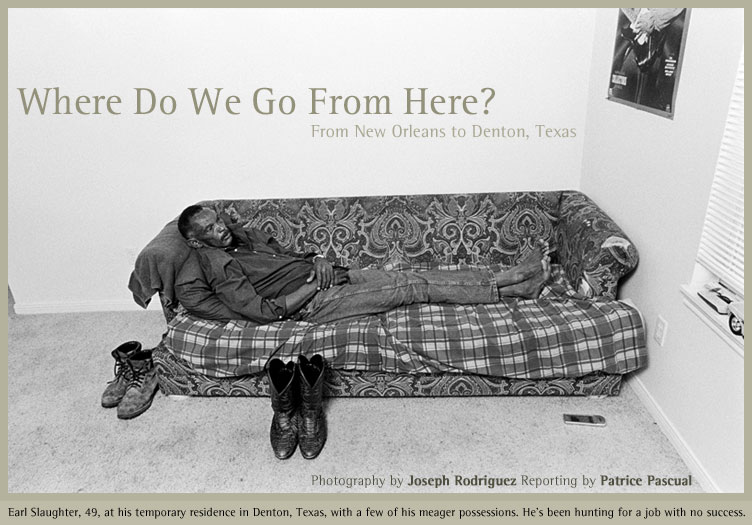
The diaspora set in motion by Hurricane Katrina brought five busloads of traumatized evacuees to Denton, Texas, a city one-third the size of New Orleans and 168 percent more white. Many are still in Denton, trying to navigate a sprawling place that has scant public transportation and little nightlife, with foods and church services so unlike those at home. The evacuees are, for the most part, grateful to Denton. Many residents gave generously to Camp Copass, a Baptist-run facility that hosted 300-plus evacuees for three weeks in September when FEMA refused to cover the camp’s costs. Local volunteers stepped forward to try and find housing and jobs for those being displaced yet again. |
But with help comes expectations, both groups now say. Many evacuees, still pained by the loss of home, community and livelihood, aren’t ready to call Denton home. Some came with personal problems or spotty work histories and a profound sense that the government not only took them far from home but also left them to figure out a very uncertain future on their own. Those helping are wary too, wondering if it’s time to stop giving, lest help become a handout. As one volunteer put it, “We want to help, but…are they working yet?” One of the lingering unanswered questions that resonates for both evacuees and their hosts across the United States was voiced by a Denton evacuee: “Where do we go from here?” |
All photographs copyright © Joseph Rodriguez; text by Patrice Pascual